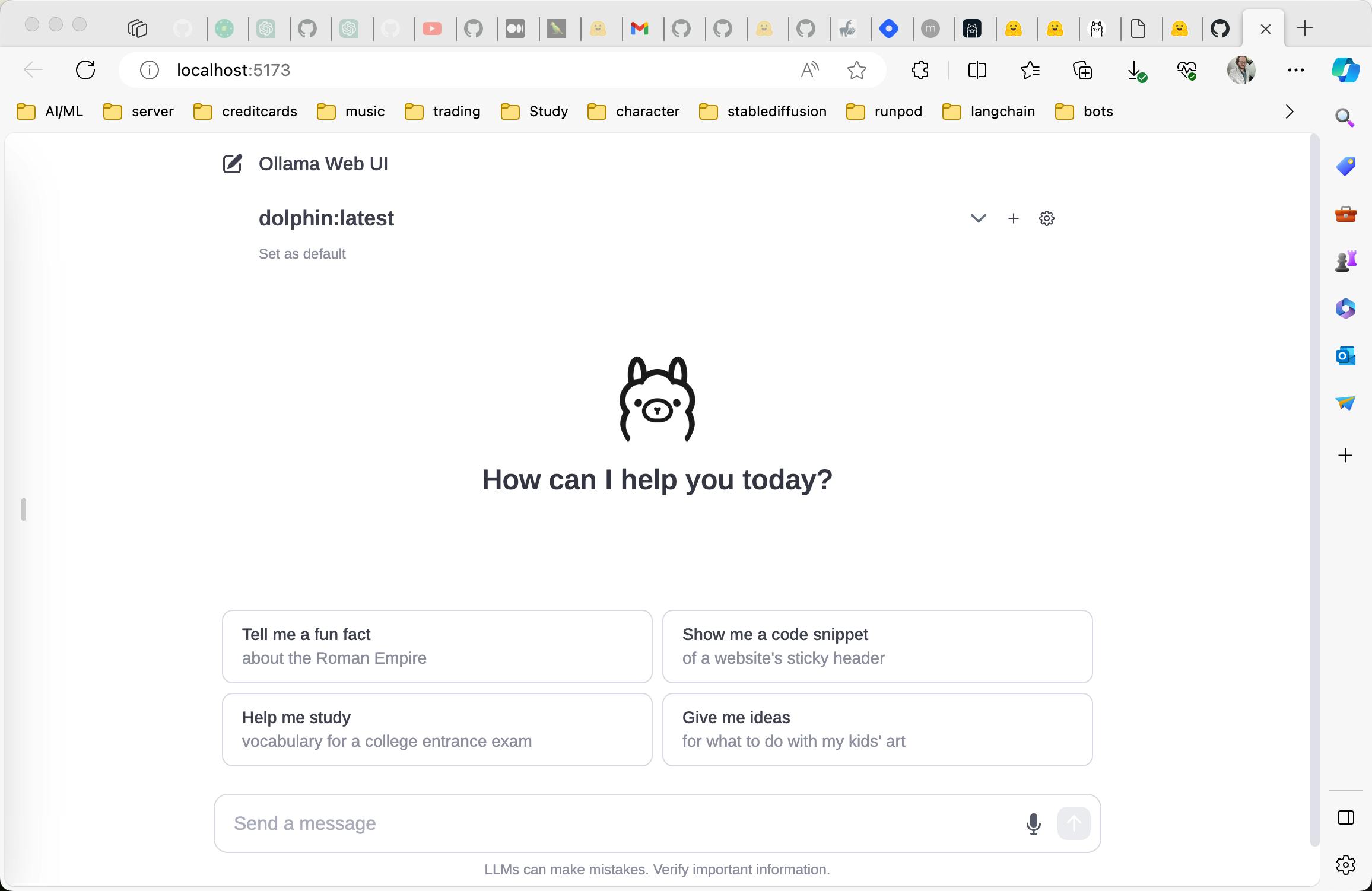AI Programming Tutorials
Local RAG Cookbook (GitHub Repo)
You can build a sophisticated and powerful RAG system that runs on your hardware using Ollama, pgvector, and local data.
Hacker News Ask HN: Daily practices for building AI/ML skills? including this
I assume you’re talking about the latest advances and not just regression and PAC learning fundamentals. I don’t recommend following a linear path - there’s too many rabbit holes. Do 2 things - a course and a small course project. Keep it time bound and aim to finish no matter what. Do not dabble outside of this for a few weeks :)
Then find an interesting area of research, find their github and run that code. Find a way to improve it and/or use it in an app
Some ideas.
do the fast.ai course (https://www.fast.ai/)
read karpathy’s blog posts about how transformers/llms work (https://lilianweng.github.io/posts/2023-01-27-the-transforme… for an update)
stanford cs231n on vision basics(https://cs231n.github.io/)
cs234 language models (https://stanford-cs324.github.io/winter2022/)
Now, find a project you’d like to do.
eg: https://dangeng.github.io/visual_anagrams/
or any of the ones that are posted to hn every day.
Eric Hartford describes step-by-step how to run locally an Oolama-based set of LLM models for conversation and chat. Sizes start at 3 GB with RAM at 6 GB+.

Tony Sun’ Deep dive into Intro to Real-Time Machine Learning: lengthy description for data scientists and machine learning engineers who want to gain a better understanding of the underlying data pipelines to serve features for real-time prediction
Simon Willison (@simonw) explains in great detail How to use Code Interpreter for an extensive Python task. Also see his podcast transcript where he goes into more detail about “Code Interpreter as a weird kind of intern”.
ChatGPT Plugins
Tutorials and Courses
Fine-tuning GPT with OpenAI, Next.js and Vercel AI SDK from Vercel, a step-by-step guide to building a specialized model for a specific task (e.g. Shakespeare).
A Github list of good sources to learn ML/LLM stuff.
Focus on the speed at which you can run valid experiments, it is the only way to find a viable model for your problem.
Andrej Karpathy’s Intro to Large Language Models is a one-hour lecture intended for complete beginners. Also see his two-hour Youtube: Let’s build GPT: from scratch, in code, spelled out. part of his Neural Networks: Zero to Hero playlist.
Getting Started with Transformers and GPT
Stanford CS324 Understanding LLMs
Recommended Videos
From Github:@krishnaik06
3. Basic Deep Learning Concepts (Day 1- Day 5) 
- ANN - Working Of MultiLayered Neural Network
- Forward Propogation, Backward Propogation
- Activation Functions, Loss Functions
- Optimizers
4. Advanced NLP Concepts (Day 6 - Last Video) 
- RNN, LSTM RNN
- GRU RNN
- Bidirection LSTM RNN
- Encoder Decoder, Attention is all you need ,Seq to Seq
- Transformers
5. Starting the Journey Towards Generative AI (GPT4,Mistral 7B, LLAMA, Hugging Face Open Source LLM Models,Google Palm Model)


5. Vector Databases And Vector Stores
- ChromaDB
- FAISS vector database, which makes use of the Facebook AI Similarity Search (FAISS) library
- LanceDB vector database based on the Lance data format
- Cassandra DB For storing Vectors
6. Deployment Of LLM Projects
- AWS
- Azure
- LangSmith
- LangServe
- HuggingFace Spaces


